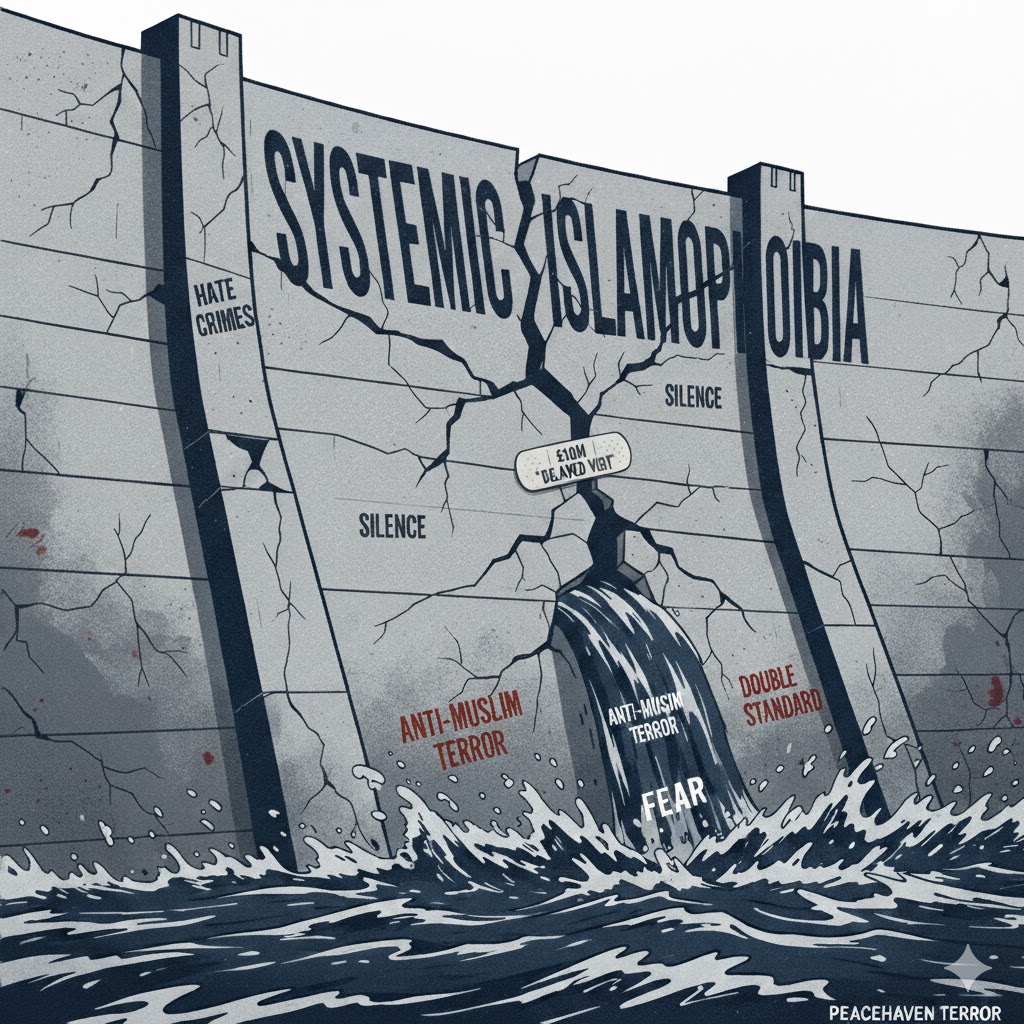
The firebombing of Peacehaven Mosque was not merely an act of arson — it was an act of terror.
Yet, for 19 long days, Britain’s leadership failed to treat it as such. During that time, worshippers in Peacehaven mourned, feared, and rebuilt, while Downing Street stayed largely silent, even as the Home Office’s own data revealed a record-high 19% rise in anti-Muslim hate crimes.
Against this backdrop of escalating terror, the Prime Minister’s delayed visit and £10 million security pledge felt less like solidarity and more like an admission that the government had, once again, missed the moral moment entirely.
The failure in Peacehaven was not an isolated misstep, but the predictable result of a disturbing national pattern: a hierarchy of victimhood in how our leaders confront hate. When synagogues are attacked, our leaders, rightly and swiftly, condemn the violence as ‘antisemitism,’ a word that recognises not just the act but the ideology behind it. It roots the hatred in history and calls it by its true name.
The Prime Minister and Home Secretary rush to the scene, their presence a public affirmation that an attack on the Jewish community is an attack on all. This is what principled solidarity looks like.
Yet this established blueprint of moral clarity is systematically abandoned when mosques are attacked. When petrol is poured over prayer halls and worshippers flee in terror, the response becomes hesitant and stripped of principle. Officials talk about “hate crimes,” but pointedly avoid “Islamophobia” and “terrorism.” They offer condolences, not condemnation.
They announce funding, but not recognition. Politicians retreat into the language of “community cohesion” and “tolerance,” speaking as if the violence were a random social malady rather than the direct product of an Islamophobia that has been fermenting in public discourse, online spaces, and even their own rhetoric.
Words matter. When the government refuses to name Islamophobia, it signals that anti-Muslim hatred is somehow less grave, less ideological, less political than antisemitism or other forms of prejudice. That double standard is not just semantic — it’s systemic.
It seeps into policing, media coverage, and alarmingly the national psyche. It tells British Muslims that their pain will be acknowledged only when it’s convenient, not when it’s urgent.
This is not a competition of suffering. Every community targeted by hate deserves unwavering solidarity. But consistency in that solidarity is a measure of a nation’s conscience.
If the Prime Minister could visit a Manchester synagogue within a day of its attack, why did it take nearly three weeks to stand with Muslims in Peacehaven? If antisemitism is condemned as an attack on British values, why is Islamophobia not treated with the same moral urgency?
The £10 million announced for mosque security is needed — but it is not enough. You cannot secure your way out of hate. Metal detectors and CCTV may protect buildings but not belonging. Protection without recognition is hollow.
True leadership means naming hatred for what it is, not only when public pressure demands it but when principles require it. If Britain is truly, as the Prime Minister says, a “proud and tolerant country,” then it must prove that Muslim lives, faith, and safety are not conditional on media outrage or political convenience.
The government must do more than fund locks and fences. It must confront the ideology that drives this violence — the Islamophobia that too often hides behind talk of “security” or “integration.” It must challenge far-right agitators who weaponise patriotism and social media to incite fear.
And it must show, through words and deeds, that the Britain it claims to represent is one where every community — Muslim, Jewish, Sikh, Hindu, Christian, or none — is defended equally, passionately, and immediately.
Because when mosques burn and our leaders hesitate to name the hatred behind the flames, their silence becomes an accomplice to the crime.